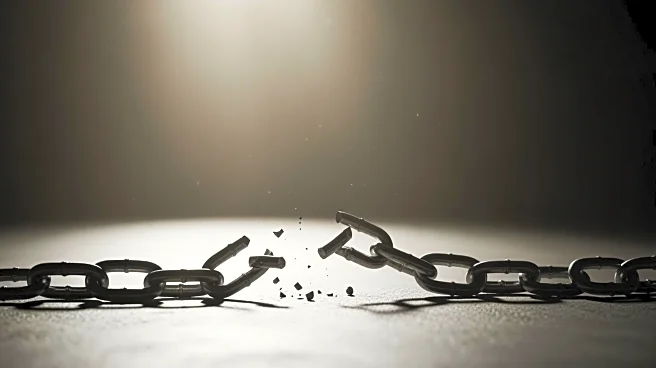What's Happening?
Former Military Advocate General Yifat Tomer-Yerushalmi has admitted to leaking a video showing Israeli soldiers abusing a Palestinian at the Sde Teiman base. During her interrogation, Tomer-Yerushalmi revealed
that she had concealed her actions from the IDF Chief of Staff, Attorney General, and Defense Minister. The leak was not known to anyone outside the Military Prosecution, according to Kan News. Her cellphone, which was found in the sea near Hatzuk Beach, confirmed her involvement. The device was discovered by a civilian and displayed a photo of Tomer-Yerushalmi with her daughter on the home screen. She provided the passcodes for her phone and smartwatch during the interrogation.
Why It's Important?
The admission by Tomer-Yerushalmi has significant implications for the Israeli military and its internal trust dynamics. The leak of such sensitive material could undermine the credibility and integrity of the military prosecution and its operations. It raises concerns about the handling of internal affairs and the potential for further leaks, which could affect national security and diplomatic relations. The incident may lead to increased scrutiny of military protocols and the safeguarding of sensitive information, impacting how military justice is perceived both domestically and internationally.
What's Next?
The investigation into the leak and its ramifications is likely to continue, with potential disciplinary actions against Tomer-Yerushalmi and others involved. The military may implement stricter security measures to prevent future leaks and restore trust within its ranks. There could be calls for policy reforms to ensure transparency and accountability in military operations. The incident may also prompt discussions on the ethical responsibilities of military personnel and the consequences of breaching confidentiality.
Beyond the Headlines
This development highlights the ethical dilemmas faced by military personnel when witnessing misconduct. It raises questions about whistleblower protections and the balance between transparency and security. The case could influence future legal frameworks regarding the handling of sensitive information and the rights of individuals to expose wrongdoing within military structures.










